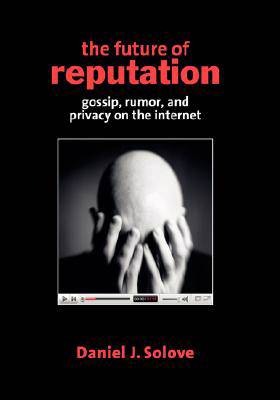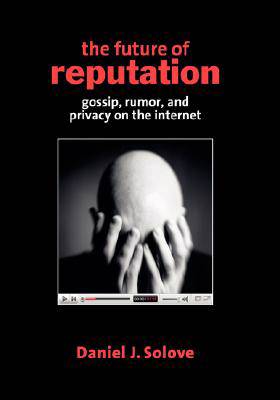
- Afhalen na 1 uur in een winkel met voorraad
- Gratis thuislevering in België vanaf € 30
- Ruim aanbod met 7 miljoen producten
- Afhalen na 1 uur in een winkel met voorraad
- Gratis thuislevering in België vanaf € 30
- Ruim aanbod met 7 miljoen producten
Zoeken
The Future of Reputation
Gossip, Rumor, and Privacy on the Internet
Daniel J Solove
Paperback | Engels
€ 52,95
+ 105 punten
Omschrijving
Teeming with chatrooms, online discussion groups, and blogs, the Internet offers previously unimagined opportunities for personal expression and communication. But there's a dark side to the story. A trail of information fragments about us is forever preserved on the Internet, instantly available in a Google search. A permanent chronicle of our private lives--often of dubious reliability and sometimes totally false--will follow us wherever we go, accessible to friends, strangers, dates, employers, neighbors, relatives, and anyone else who cares to look. This engrossing book, brimming with amazing examples of gossip, slander, and rumor on the Internet, explores the profound implications of the online collision between free speech and privacy.
Daniel Solove, an authority on information privacy law, offers a fascinating account of how the Internet is transforming gossip, the way we shame others, and our ability to protect our own reputations. Focusing on blogs, Internet communities, cybermobs, and other current trends, he shows that, ironically, the unconstrained flow of information on the Internet may impede opportunities for self-development and freedom. Long-standing notions of privacy need review, the author contends: unless we establish a balance between privacy and free speech, we may discover that the freedom of the Internet makes us less free.
Daniel Solove, an authority on information privacy law, offers a fascinating account of how the Internet is transforming gossip, the way we shame others, and our ability to protect our own reputations. Focusing on blogs, Internet communities, cybermobs, and other current trends, he shows that, ironically, the unconstrained flow of information on the Internet may impede opportunities for self-development and freedom. Long-standing notions of privacy need review, the author contends: unless we establish a balance between privacy and free speech, we may discover that the freedom of the Internet makes us less free.
Specificaties
Betrokkenen
- Auteur(s):
- Uitgeverij:
Inhoud
- Aantal bladzijden:
- 492
- Taal:
- Engels
Eigenschappen
- Productcode (EAN):
- 9780300138771
- Verschijningsdatum:
- 1/11/2007
- Uitvoering:
- Paperback
- Formaat:
- Trade paperback (VS)
- Afmetingen:
- 178 mm x 254 mm
- Gewicht:
- 843 g

Alleen bij Standaard Boekhandel
+ 105 punten op je klantenkaart van Standaard Boekhandel
Beoordelingen
We publiceren alleen reviews die voldoen aan de voorwaarden voor reviews. Bekijk onze voorwaarden voor reviews.







